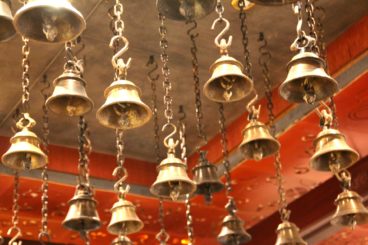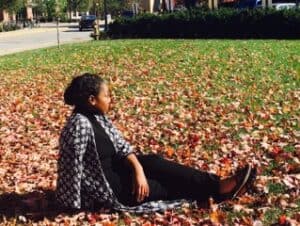
By Katie Tan
Christmas: a time of giving, of family, of warmth and kindness. A time of hope! And yet, I find myself floundering in despair.
Aleppo. Yemen. Turkey. Berlin. Zurich. Cairo. Myanmar. DR Congo.
War. Protest. Refugees. Famine. Bombs. Blood. Death.
As we celebrate our Savior’s birth, we are surrounded—inundated—by death. And I have to be honest: I am struggling with that disparity. With my own guilt.
Guilt that I am enjoying the holidays while others are murdered daily in the streets of Aleppo. Guilt that my biggest concern is what goodies to bake while families are starving in Yemen’s civil war. Guilt that I think “Treat yo’self!” because, heck! I just finished my first semester of grad school and it’s Christmas—while terrorists and corrupt governments are killing indiscriminately around the world. Guilt that I attempt to protect my Christmas spirit by avoiding the painful, nightmarish headlines, while others cannot escape their reality.
And guilt that I cannot see hope in these situations—me, a Christian, whose faith is built on the hope of Christ and the Kingdom.
Joy to the world, the Lord is come!
Let earth receive her King!
Joy? At a time like this? It feels irreverent, dismissive even, of the very real suffering in the world. Where is the Savior when so many need Him?
Joy? At a time like this? It feels irreverent, dismissive even, of the very real suffering in the world. Where is the Savior when so many need Him?
The earth did not joyously receive her King when Jesus was born. Matthew 2:13-18 tells us that Mary and Joseph fled to Egypt with Jesus because of the threat of death. King Herod, vainglorious as he was, could not stand that another king might challenge his authority. He decreed for all boys age two and under to be killed. Jesus might have been too young to realize what was going on, but Mary and Joseph knew. God told them to escape. They feared for their son. They understood the meaning of terror and despair.
By definition, Jesus was a refugee. He was forced to flee his home country because of persecution or the well-founded fear of persecution. Mary and Joseph fled to protect their child, much like millions of families do now.
The world of turmoil that Jesus was born into is not much different than our own. As of June 2016, there were 65.3 million displaced persons worldwide, 21.3 of whom were refugees. The numbers increase by the millions each year. Over half of all refugees come from just three countries: Syria, Afghanistan, and Somalia. And according to UNICEF, one in four children currently live in countries impacted by conflict or other disasters.
Simultaneously, anti-immigrant and anti-Islamic sentiment is increasing around the world. Countries with the most means—the United States, the United Kingdom, France, Germany—are pushing back against the rising need for refugee resettlement, especially of Muslim refugees from Syria. ISIS-led and/or inspired attacks in Paris, Brussels, Ankara, Berlin, Cairo, San Bernardino, and Orlando have hardened our hearts and instilled fear deep within us. Ashamedly, the year 2015 saw a 67% increase in anti-Muslim hate crimes in the US, the highest level of violence since the aftermath of September 11.
We say we have done enough. Or we say it’s not our responsibility—let the Middle East take care of their own. Or we say there’s too much at stake.
While some fear is justified, isolating ourselves and turning a cold shoulder is not. As the facts stand now, non-Western countries are absorbing the brunt of ISIS and the refugee crisis. The ten countries that host the most refugees in the world, in order, are: Jordan, Turkey, Pakistan, Lebanon, Iran, Ethiopia, Kenya, Uganda, Democratic Republic of Congo, and Chad. Most of these countries are already fighting ISIS, as well as dealing with rebel groups, corrupt government practices, their own refugee crises, and struggling economies. Furthermore, 74% of all deaths due to terrorist attacks in 2015 took place in Iraq, Afghanistan, Nigeria, Syria, and Pakistan. Not in the West. Though those are, truthfully, the numbers we seem to care most about.
Allowing fear to harden us is unacceptable. But allowing despair to immobilize us is just as damning. It bespeaks a lack of hope, of faith, of redemptive imagination.
Allowing fear to harden us is unacceptable. But allowing despair to immobilize us is just as damning. It bespeaks a lack of hope, of faith, of redemptive imagination. I am speaking largely to myself here. There is solace in the knowledge that Christ is Immanuel, God with us. That Christ himself was a refugee in a world of turmoil. That Christ knows deeply, intimately, the pain and sin of the world. That Christ loves us so fully He entered our world as an infant, poor and in peril, to serve and redeem His creation.
No more let sins and sorrows grow,
Nor thorns infest the ground;
He comes to make His blessings flow
Far as the curse is found.
Jesus is truth and hope and love and forgiveness and justice incarnate. And, praise our gracious Lord, we are made in His image. We are called as image bearers to be light and salt to a dark earth; to draw out the good, relieve suffering, and subvert evil.
Finding comfort in these truths is anything but irreverent to the suffering of others around the world. Indeed, Jesus is the only truth that cuts through our despair and empowers us to believe, pray, act. To find courage. To dare to hope and to love.
So…joy?
Yes. Joy.
Joy to the world.
One day all heaven and nature will sing God’s praises. Until that day comes, I will continue in hope to do the work of love and justice that God has set before me. The urgent situation in Aleppo and other countries still presses on my heart, but I have to believe the situation is not without hope. There are numerous organizations serving and saving, attempting to broker peace, all over the world. God is at work. By participating in His work, through prayer and funding food and shelter for families trapped in Aleppo, I have slowly begun to overcome the power of despair.
I know my donations won’t solve the crises. I know the conflicts are protracted, ancient, and complex. Regardless, God called His people to love, and love is an action. I cannot turn away from the suffering of others. God presented me with the passion, ability, and privilege to respond. I spent the past five years working in refugee resettlement, and I will continue advocating for refugee rights and care. I will oppose Islamophobia and racism and sexism whenever I witness them. I will strive to be like a sheep placed at the right hand of God, called blessed for providing food, water, clothing, and welcome to the stranger. I will pray that the kingdom comes on earth as it is in heaven, recognizing that the Kingdom of God is actually here, within us. His name is Jesus.
This Christmas, I choose to repeat the sounding joy of Jesus.
This Christmas, I choose to repeat the sounding joy of Jesus.
If you, too, are struggling this holiday season, I encourage you to explore how you can participate in God’s work of alleviating suffering around the world and in your own community. I pray that it helps shine the light of hope into your soul, as it has mine.
Katie Tan is the Administrative Associate at The Sider Center of Palmer Seminary at Eastern University. She just completed her first semester of the Masters of Urban Studies in Community Development at Eastern. As a military brat and chaplain’s kid, she spent half her childhood overseas and half in Texas and Oklahoma. Through her family and travels, Katie developed a passion for different cultures and a desire to love like Jesus. Before moving to Pennsylvania to pursue a masters, she worked in refugee resettlement at the International Rescue Committee in Texas. She is married to Ethan Tan, who is studying at the University of Pennsylvania, and they have two cats.


